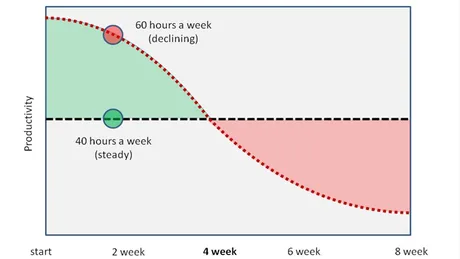A large body of research suggests that working long hours, doesn’t necessarily make companies more profitable, the Harvard Business Review reports.
“For starters, it doesn’t seem to result in more output. In a study of consultants by Erin Reid, a professor at Boston University’s Questrom School of Business, managers could not tell the difference between employees who actually worked 80 hours a week and those who just pretended to. While managers did penalize employees who were transparent about working less, Reid was not able to find any evidence that those employees actually accomplished less, or any sign that the overworking employees accomplished more.”
Furthermore, there’s considerable evidence that shows overwork “is not just neutral — it hurts us and the companies we work for.”
“Numerous studies by Marianna Virtanen of the Finnish Institute of Occupational Health and her colleagues (as well as other studies) have found that overwork and the resulting stress can lead to all sorts of health problems, including impaired sleep, depression, heavy drinking, diabetes, impaired memory, and heart disease. Of course, those are bad on their own. But they’re also terrible for a company’s bottom line, showing up as absenteeism, turnover, and rising health insurance costs. Even the Scroogiest of employers, who cared nothing for his employees’ well-being, should find strong evidence here that there are real, balance-sheet costs incurred when employees log crazy hours.”
Meanwhile, Daniel Cook, the Chief Creative Officer at video game maker Spry Fox, has written about how working a 60 hour week could lead to a “productivity deficit.”
“In a 60 hour crunch people have a vague sense that they are doing worse, but never think that they should stop crunching. They imagine that working 40 hours a week will decrease their productivity. In fact, it will let them rest and increase their productivity”.
Cook also cites 31 studies which found flexible schedules “increased employee productivity and lower absenteeism.”

